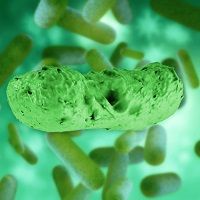Interferon-free Combination Therapy Can Prevent Post-transplant HCV Recurrence
Following 2 recent studies published in Gastroenterology, researchers reported that a 24-week course of sofosbuvir and ribavirin could eliminate hepatitis C virus (HCV) infection in two-thirds of patients who undergo liver transplantation.

Following 2 recent studies published in Gastroenterology, researchers reported that a 24-week course of sofosbuvir and ribavirin could eliminate hepatitis C virus (HCV) infection in two-thirds of patients who undergo liver transplantation.
The initial study, a Phase 2, open-label procedure observing 61 HCV patients reported that up to 48 weeks of combination therapy with sofosbuvir and ribavirin before liver transplantation could prevent recurrence of HCV infection post-transplantation in 70 percent of patients.
Michael P. Curry, MD, Beth Israel Deaconess Medical Center, Boston, MA, said, “Patients with hepatitis C virus at the time of liver transplantation universally experiences recurrent HCV infection. Recurrent HCV infection follows an aggressive course. Given the burden of disease — the increased morbidity, mortality and costs – and the lack of a safe and broadly effective treatment to prevent recurrence of HCV infection, these results provide hope for patients in need.”
The second clinical trial, a prospective, multi-center, open-label pilot study, included patients with recurrent HCV infection following a primary or secondary liver transplant. These set of patients were administered an all-oral regimen of sofosbuvir and ribavirin for a 24-week period, which spurred a sustained virologic response, with no detectable virus, in 70 percent of the patients.
Both studies shared lowrates of discontinuation as a direct result of adverse events.
According to Michael R. Charlton, MD, Mayo Foundation, Rochester, MN, it was found that, "A well tolerated and effective treatment protocol for recurrence of HCV infection following liver transplantation is an important unmet clinical need. Our study demonstrates that patients with characteristics that have historically been difficult to cure with interferon-based regimens, including those with advanced disease, may benefit from this all-oral interferon-free therapy."